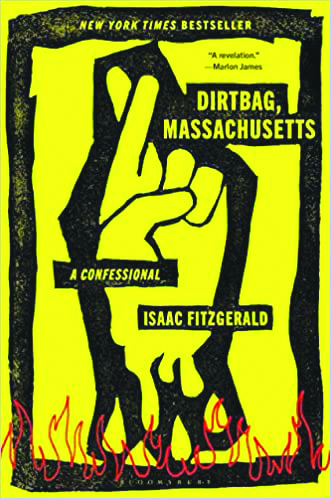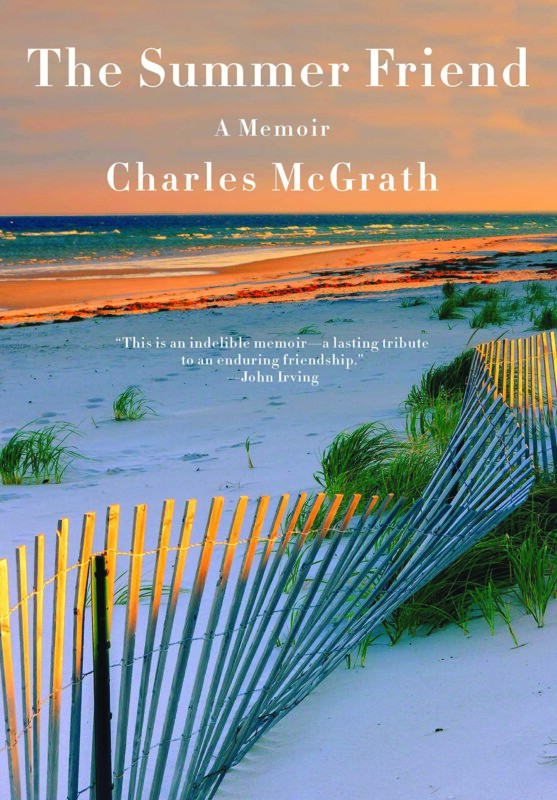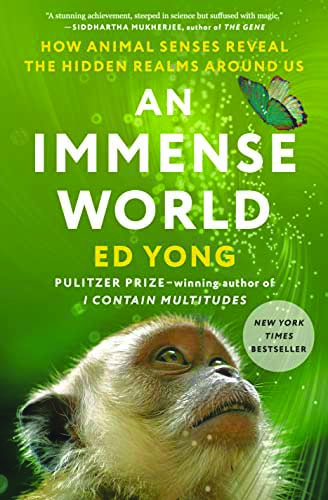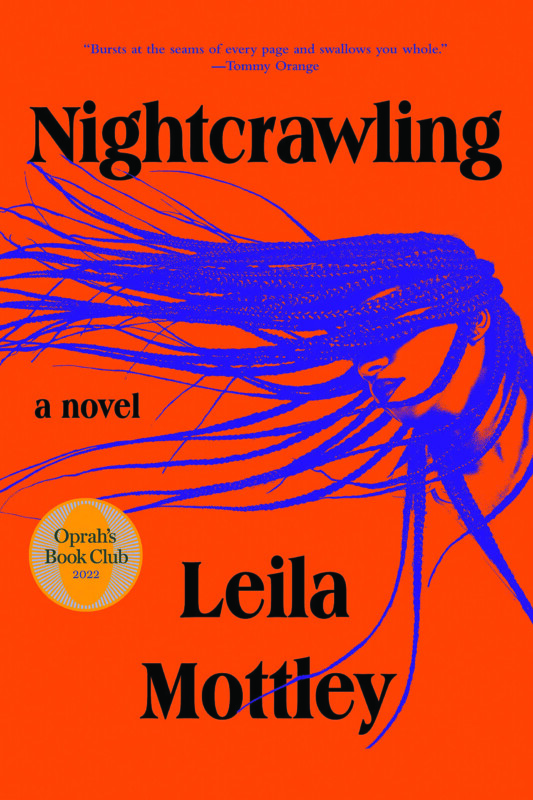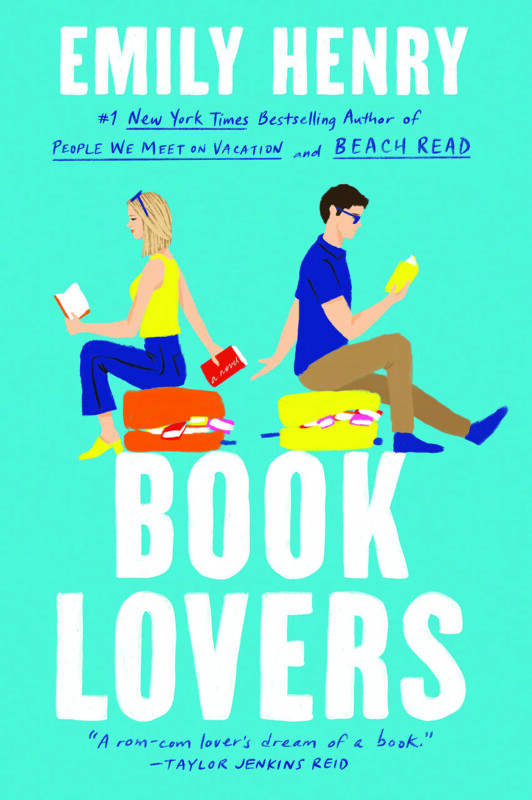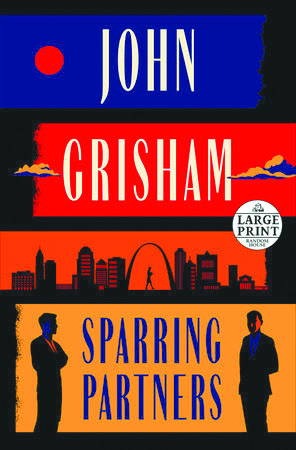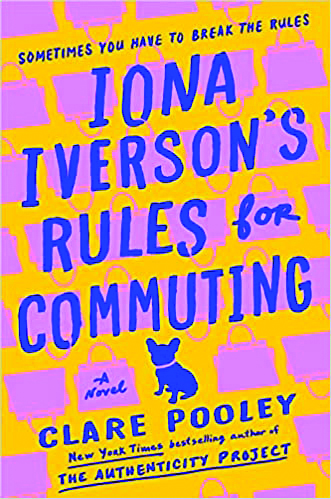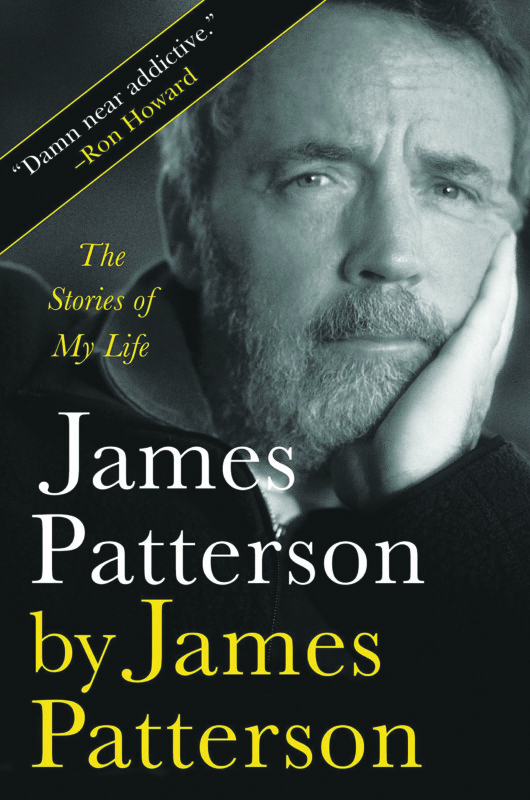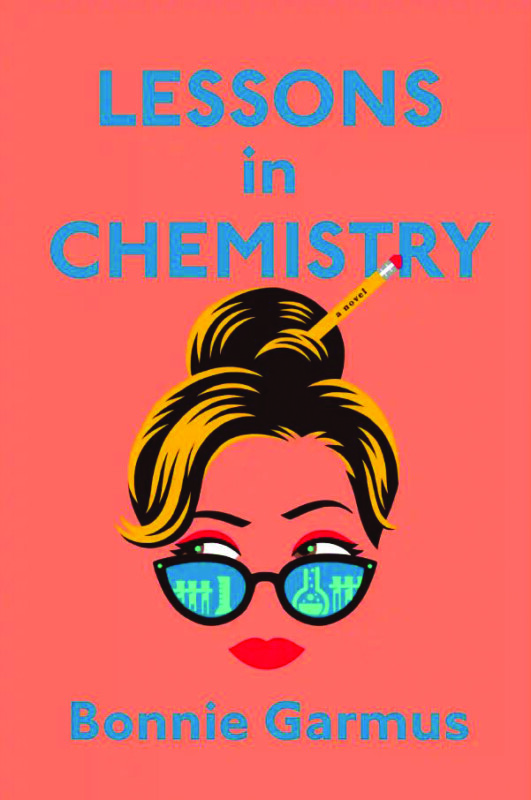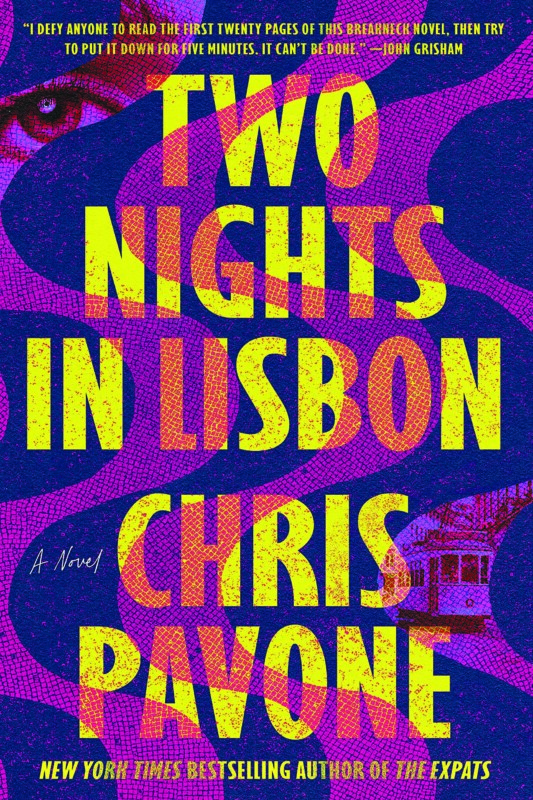Dirtbag, Massachusetts by Isaac Fitzgerald (Bloomsbury, 242 pages)
When people outside of New England think about Massachusetts, they think about Boston — the history, the sports, the Brahmins.
Isaac Fitzgerald, however, hails from the seamier side of the Commonwealth. His childhood memories include a stint at a homeless shelter in Boston and a generally miserable encampment in a Worcester County town called Athol, which is sometimes irreverently referred to as an expletive that stands in for a body part.
You can’t use that in a book title, however, so Fitzgerald’s memoir is called Dirtbag, Massachusetts.
Subtitled “a confessional,” the book is exactly that, and it’s not just Fitzgerald’s sins that are confessed here, but those of his parents and friends.
“My parents were married when they had me, just to different people,” Fitzgerald begins. It’s a catchy line though somewhat diminished by Fitzgerald’s admission that he’s been saying this to people for much of his adult life; it was a set-up in search of a book-length punchline.
Fitzgerald, who once was the books editor for Buzzfeed and wrote a children’s book called How to Be a Pirate, has the kind of life trajectory that is defiant of its origins. His parents, who were divinity school students when they met and had an affair, were the sort of people who looked good on paper but were a Dumpster fire in reality. And Fitzgerald has no qualms about airing the family’s dirty laundry. While married to other people, for example, his parents would say they were off on “spiritual retreats” while in fact they were meeting for joyous trysts in the White Mountains. (He was conceived on Mount Carrigain.) His mother later told him that she considered getting an abortion and mused, “Maybe it would have been for the best.”
“Telling a child at a very young age, whom you’re raising in the Catholic Church, that he was a miracle conception is a choice,” he writes. “Messy parenting, maybe, but it makes for another good story.”
Dirtbag, Massachusetts is full of good stories, most of which skirt ethical lines, such as Fitzgerald’s father taking him to Red Sox games and usually getting seats “so close you could smell the grass” by telling ushers that it was his son’s first game. (“I must have had a hundred first games.”) There is a roguish charm to the family’s story, not only in the illicit conception, the “happy accident,” but in how hard it seems that Fitzgerald’s parents were trying.
As a young child, the father, who struggled with alcoholism, read him The Hobbit and “The Rime of the Ancient Mariner.” The father would let his son accompany him on a bike while he ran along the Charles River. For a time, it was a vibrant little family, one that was intellectually alive. But there was also an ever-present grubby poverty and worsening relationship problems that caused his mother to cry herself to sleep at night and to overshare with her young son. Fitzgerald writes that his parents’ problems — “her sadness, his anger”— became his as well.
Meanwhile, Fitzgerald himself was growing up rough around the edges. When he went to confession at age 12, “I told the priest about breaking into houses to raid liquor cabinets, lifting bottles from package stores and cigarettes from grocery stores, trading bottles and cigarettes for weed and mushrooms.” The priest himself could not cast the first stone; the story turns dark when young Isaac confesses a sexual encounter and the priest shows an unusual lurid interest in the details. That segues into a discussion of the sex abuse scandal in the Archdiocese of Boston — for a while, Fitzgerald’s mom worked at the cathedral while Bernard Law (archbishop of Boston from 1984 to 2002) was in charge and she would take him to work. As such, he has stories to tell, one truly concerning, although when his mother much later got around to asking him if he had ever been molested, he could say “no” honestly. But he likely came close.
Fitzgerald is no longer a practicing Catholic; he doesn’t even believe in God but says “I still pray anytime I’m in trouble, or feeling lost, or alone, which is to say I still do it almost daily.” He also has an attachment to St. Jude, the patron saint of lost causes, and has a tattoo with an image of the saint, among others. It’s a great metaphor for how any religious upbringing sinks into our pores and stays there, whether we want it there or not.
From there, Fitzgerald takes his substantial comic gifts to describe his stint as a fat kid (although the length of time that he was overweight appears greatly overstated), the joy he found in a high-school “fight club” inspired by the Edward Norton-Brad Pitt movie, and his experience at boarding school, after getting himself admitted on a full scholarship because he was so desperate to leave his dilapidated mill town. When he arrived, he didn’t even have sheets for his bed, or a jacket and tie to wear to the school’s first-night formal dinner. In a poignant moment that seems to sum up the deprivations of his childhood, Fitzgerald explains that he borrowed an overlarge jacket and tie from his Cape Cod roommate and stood there awkwardly, unsure of how to knot the tie. The roommate, who wasn’t a stereotypical prep-school jerk, took notice, and smoothly offered to help. It’s the kind of moment that sticks with you, and one that shows that Fitzgerald has humanity — and appreciates it in others.
There are chapters in the book that don’t work as well. If you’ve never heard of, and don’t care for, the band “The Hold Steady,” you are unlikely to care about them after reading Fitzgerald’s fanboy tribute. (That said, if you love the band, run and get a copy and jump immediately to page 78.) Fitzgerald’s love letter to his favorite bar is best if you, too, have a bar that works double duty as a home. And he abandons all pretenses of chronology after adulthood; jumping back, for example, to an incident at prep school (that I frankly wish were not now in my brain) after relating some stories of international travel.
But none of that prepares us for the discussion of Fitzgerald’s six months of “modeling” for a porn website, which is information I really didn’t want or need. (The book jacket only mentions bartending in San Francisco and smuggling medical supplies into Burma.) TMI. Truly.
After that, however, he slips into sentimental mode for a musing on family that gives hope that even the most messed up families on the planet — or least in Dirtbag, Massachusetts — can end on a sweet note. It’s not the book we want or expect, but maybe it’s a book some of us need. B
Book Notes
When the lazy, hazy, crazy days of summer draw near to a close, it’s usually time for a new, highly anticipated, deeply reported book on the New England Patriots to appear, one that will finally be the “definitive story” of the NFL dynasty. Even in the absence of Tom Brady, we had one last year: It’s Better to Be Fearedby Seth Wickersham (Liveright, 528 pages).
This year: crickets. Other than a few self-published guides to fantasy football, there’s not a lot out there. Aside from an upcoming biography of Dallas Cowboys coach Jimmy Johnson (Swagger, due out in November), the only marquee title welcoming the return of the football season is Rise of the Black Quarterback, What it Means for America by ESPN writer Jason Reid (Andscape, 288 pages). The book begins with the story of the first African American to become an NFL head coach, Fritz Pollard, and works its way up to legends-in-progress like Patrick Mahomes, Colin Kaepernick, Lamar Jackson and Kyler Murray.
There’s also a new book on Jim Thorpe, the multisport athlete who was the first Native American to win a gold medal for Team USA in the Olympics. Path Lit By Lightning (Simon & Schuster, 672 pages) is not for anyone with only a casual history in Thorpe and his achievements, but resides in that “definitive history” genre.
It’s by Pulitzer Prize winner David Maraniss, who chronicles Thorpe’s excellence in football, baseball, basketball and the decathlon while also examining the more sobering realities of his life, such as his struggles with alcoholism. Thorpe is still considered by many to be the world’s greatest athlete, and there’s even a town in Pennsylvania named after him. Publisher’s Weekly calls this an essential work that “restores a legendary figure to his rightful place in history.”
Next, it’s part sports, part business and probably part self-help, but college football fanatics will want to check out The Leadership Secrets of Nick Saban (Matt Holt, 256 pages) by John Talty. The book promises an inside look at how Saban, longtime coach of Alabama’s Crimson Tide, became “the greatest ever.” (Lou Holtz might like a word.) Presumably this builds upon Saban’s own inspirational book, How Good Do You Want to Be?, published in 2007, the year he took over at Alabama.
Finally, for those who insist NASCAR is a sport, Kyle Petty is out with Swerve or Die: Life at My Speed in the First Family of NASCAR Racing (St. Martin’s Press, 288 pages). Now retired and a commentator for NBC Sports, Petty is the son of the late NASCAR legend Richard Petty. It’s a gutsy title, given that his driver son, Adam, was killed in a practice run at New Hampshire Motor Speedway in Loudon 22 years ago.
Book Events
Author events
• TOM MOORE Andy’s Summer Playhouse (582 Isaac Frye Highway in Wilton; 654-2613, andyssummerplayhouse.org) and Toadstool Bookshop will present an event with Tom Moore, one of the authors of the bookGrease, Tell Me More, Tell Me More: Stories from the Broadway Phenomenon That Started It All on Friday, Aug. 19, at 5 p.m. at Andy’s Summer Playhouse. See andyssummerplayhouse.org/grease to RSVP to the event.
• CAROL BUSBY presents Sailing Against the Tide at the Bookery (844 Elm St., Manchester, bookerymht.com, 836-6600) on Saturday, Aug. 20, at 2 p.m. Free event; register at www.bookerymht.com/our-events.
• SPENCER QUINN presents Bark to the Future: A Chet & Bernie Mysteryat Gibson’s Bookstore (45 S. Main St., Concord, 224-0562, gibsonsbookstore.com) on Thursday, Aug. 18, at 6:30 p.m. and on Sunday, Aug. 28, at noon at the Bookery (844 Elm St., Manchester, bookerymht.com, 836-6600). The Bookery event is BYOD: bring your own dog.
• PHIL PRIMACK presents Put It Down On Paper: The Words and Life of Mary Folsom Blair in a Literary Lunchtime event at Gibson’s Bookstore (45 S. Main St., Concord, 224-0562, gibsonsbookstore.com) on Thursday, Sept. 8, at noon.
Poetry
• OPEN MIC POETRY hosted by the Poetry Society of NH at Gibson’s Bookstore (45 S. Main St., Concord, 224-0562, gibsonsbookstore.com), starting with a reading by poet Sam DeFlitch, on Wednesday, July 20, from 4:30 to 6 p.m. Newcomers encouraged. Free.
• DOWN CELLAR POETRY SALON Poetry event series presented by the Poetry Society of New Hampshire. Monthly. First Sunday. Visit poetrysocietynh.wordpress.com.
Writers groups
• MERRIMACK VALLEY WRITERS’ GROUP All published and unpublished local writers who are interested in sharing their work with other writers and giving and receiving constructive feedback are invited to join. The group meets regularly Email pembrokenhtownlibrary@gmail.com.
Book Clubs
• BOOKERY Monthly. Third Thursday, 6 p.m. 844 Elm St., Manchester. Visit bookerymht.com/online-book-club or call 836-6600.
• GIBSON’S BOOKSTORE Online, via Zoom. Monthly. First Monday, 5:30 p.m. Bookstore based in Concord. Visit gibsonsbookstore.com/gibsons-book-club-2020-2021 or call 224-0562.
• TO SHARE BREWING CO. 720 Union St., Manchester. Monthly. Second Thursday, 6 p.m. RSVP required. Visit tosharebrewing.com or call 836-6947.
• GOFFSTOWN PUBLIC LIBRARY 2 High St., Goffstown. Monthly. Third Wednesday, 1:30 p.m. Call 497-2102, email elizabethw@goffstownlibrary.com or visit goffstownlibrary.com
• BELKNAP MILL Online. Monthly. Last Wednesday, 6 p.m. Based in Laconia. Email bookclub@belknapmill.org.
• NASHUA PUBLIC LIBRARY Online. Monthly. Second Friday, 3 p.m. Call 589-4611, email information@nashualibrary.org or visit nashualibrary.org.
Language
• FRENCH LANGUAGE AND LITERATURE CLASSES
Offered remotely by the Franco-American Centre. Six-week session with classes held Thursdays from 6:30 to 8:30 p.m. $225. Visit facnh.com/education or call 623-1093.

